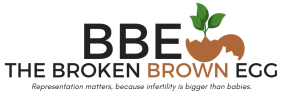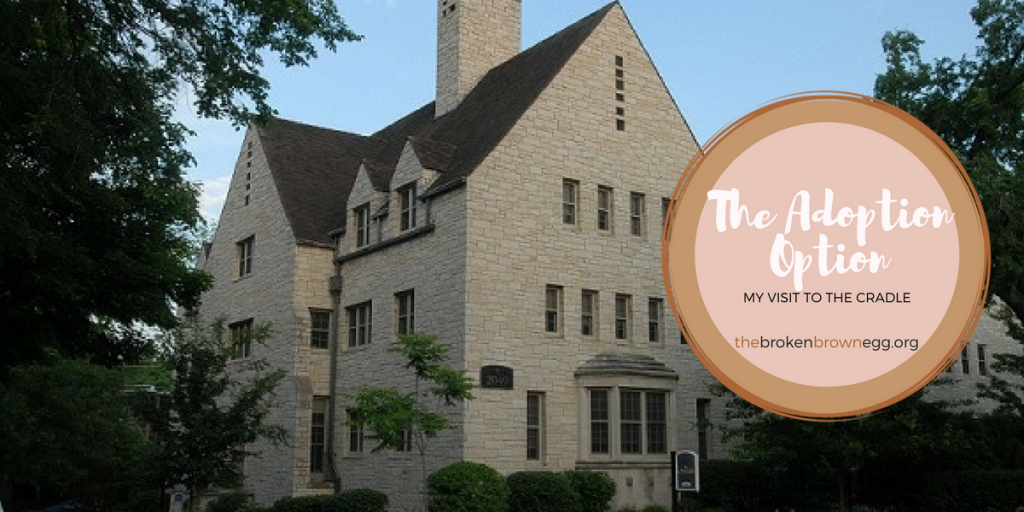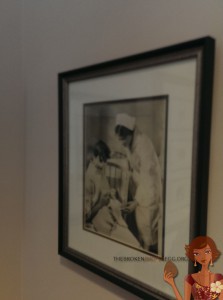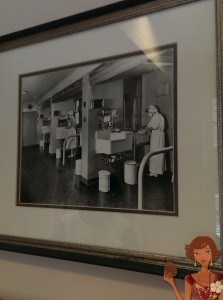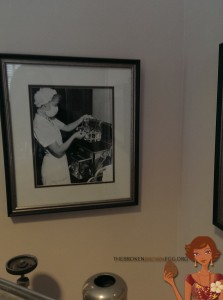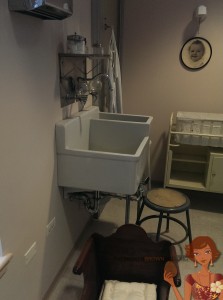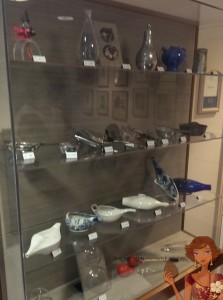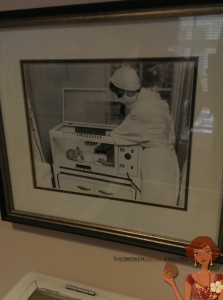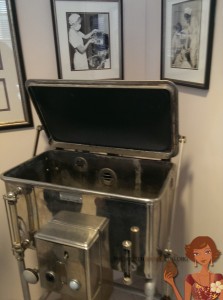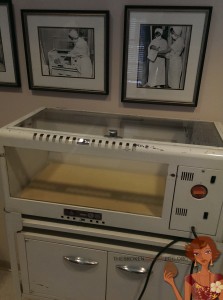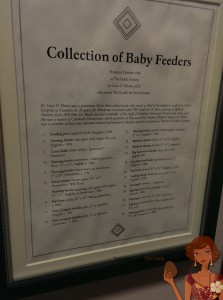Recently, I was invited to visit The Cradle’s “Gale and Ardythe Sayers Center for African American adoption”, on behalf of The Egg. I had a really great time not only learning about the history of this great resource, but also just having a good “you get it” convo with Nijole (pronounced ni-lay), the organization’s Director of Resource and Community Development.
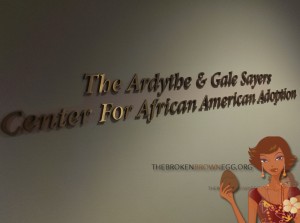 On a chilly Sunday afternoon, I met with my sorority sisters for lunch in Evanston and then headed over just in time to meet with Nijole at The Cradle’s headquarters. She and her son Harrison, a proud “Cradle Baby”, met me with huge smiles, open arms, and an adorable puppet, in the parking lot. Stopping in to take off our winter coats, one of the first things I saw was a Chicago Bears jersey of former player Gale Sayers, for whom the African American adoption center is named for.
On a chilly Sunday afternoon, I met with my sorority sisters for lunch in Evanston and then headed over just in time to meet with Nijole at The Cradle’s headquarters. She and her son Harrison, a proud “Cradle Baby”, met me with huge smiles, open arms, and an adorable puppet, in the parking lot. Stopping in to take off our winter coats, one of the first things I saw was a Chicago Bears jersey of former player Gale Sayers, for whom the African American adoption center is named for. 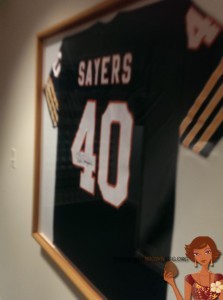
Throughout the main floor were walls and walls of photographs of children who’ve been placed through The Cradle. There are photos just about everywhere, that make it very clear just how many lives have been changed here. Along a south wall, was a photo of a woman with a warm smirk, and an adorable hat. Nijole introduced her as Florence Walrath, founder of The Cradle. 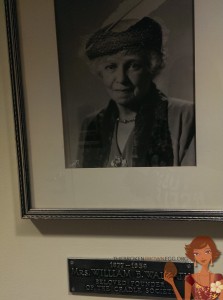
The Cradle, was founded by Evanston, Illinois resident Florence Walrath in 1923. Having a sister who’d experienced infertility, Florence’s chance encounter with a doctor who knew of a young woman who was pregnant with no hope, led to Florence uniting the two women. That one match led to 91 years of building families!
I was inspired by the story of Florence Walrath. At the time she began her mission to find families for children, adoption was highly stigmatized. Because of the stigma, it was also a very quiet and secretive endeavor. One can imagine how much harder it had to be to face infertility during those days, and how heightened the guilt, shame and embarrassment must have been. To provide this service for so many families, was a true mission.
Not only did she work to unite families, but eventually also to bring some dignity to the process, for all involved. Her work in The Cradle also helped to address the high infant mortality rates that were of the time period. I’d encourage anyone to learn more about this amazing woman!
Continuing our tour, I visited The Cradle Museum, a room with original images and materials from the organization’s history.
I also visited the “Living room”, where the staff says their goodbyes to new families going home. 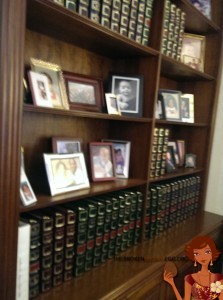 Last on the main floor, I visited the room where many birth-parents have their introduction meetings with potential adoptive parents.
Last on the main floor, I visited the room where many birth-parents have their introduction meetings with potential adoptive parents. 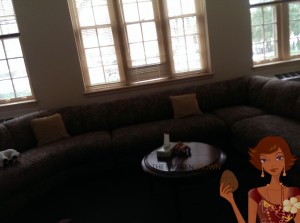
While standing in this room, a lot of thoughts flooded my head, and Nijole actually blessed me with the story of how she and her husband felt on the day they met their son’s birthmother in this very space. What a hard conversation. What a hard decision.
The more we talked, the more I felt that it is special people who are called to adoption. People who can accept the move past their original wants and desires, to accept that the primary goal is now to provide family for a child, and not to fill a void. The mourning process, for those of us who have dealt with infertility, and the act of letting go of the things you thought would be, is heart-wrenching. But also beautiful.
I applaud The Cradle for offering support and encouragement to those people.
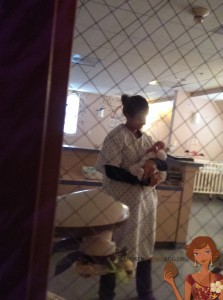 Last on the tour, was a trip to visit the nursery. The Cradle is the only adoption agency in the country with a 24 hour nursery to house infants who are in need of temporary care. Volunteers come in to provide contact and love for the infants, while nursing staff is also on hand. Detailed notes are taken while infants are in their care, to monitor eating habits, personalities, and any other information that their parents may need when they head home.
Last on the tour, was a trip to visit the nursery. The Cradle is the only adoption agency in the country with a 24 hour nursery to house infants who are in need of temporary care. Volunteers come in to provide contact and love for the infants, while nursing staff is also on hand. Detailed notes are taken while infants are in their care, to monitor eating habits, personalities, and any other information that their parents may need when they head home.
Returning to Nijole’s office, we talked a bit more about what the Sayer’s Center program means for African American adoption. At half the cost, the Sayer’s program seeks to make adoption more accessible, in the hopes of removing a barrier that could be behind the lack of potential African American adoptive parents.
More than anything, our conversation at its heart, was still just one of the warm and comfortable ones I’ve come to expect when speaking to someone else who has dealt with infertility. Our wants are similar. We both want to make people aware. Aware of the resources available to them, and aware of how to empower themselves with the knowledge to change the conversation around family building. No one’s journey has to be identical to anyone else’s, but rather it’s the right of each of us to find the path that best suits us.
While adoption isn’t at the forefront of my husband and I’s journey right now, I have to admit to feeling sincerely grateful that there were other individuals like me, who were willing to be my support if it did become our next step.
The Cradle is not the only adoption agency. Their way of doing things is not the only way. Their program is, I’m sure, not solely unique. And adoption is not the path for everyone. However, I thought it was important to share this experience, and tell someone who needs to hear it, that adoption is a viable option for some of us, and it is not as out of reach as one may think.
Thank you Nijole for the tour, and for just being a warm fellow advocate in this fight.
